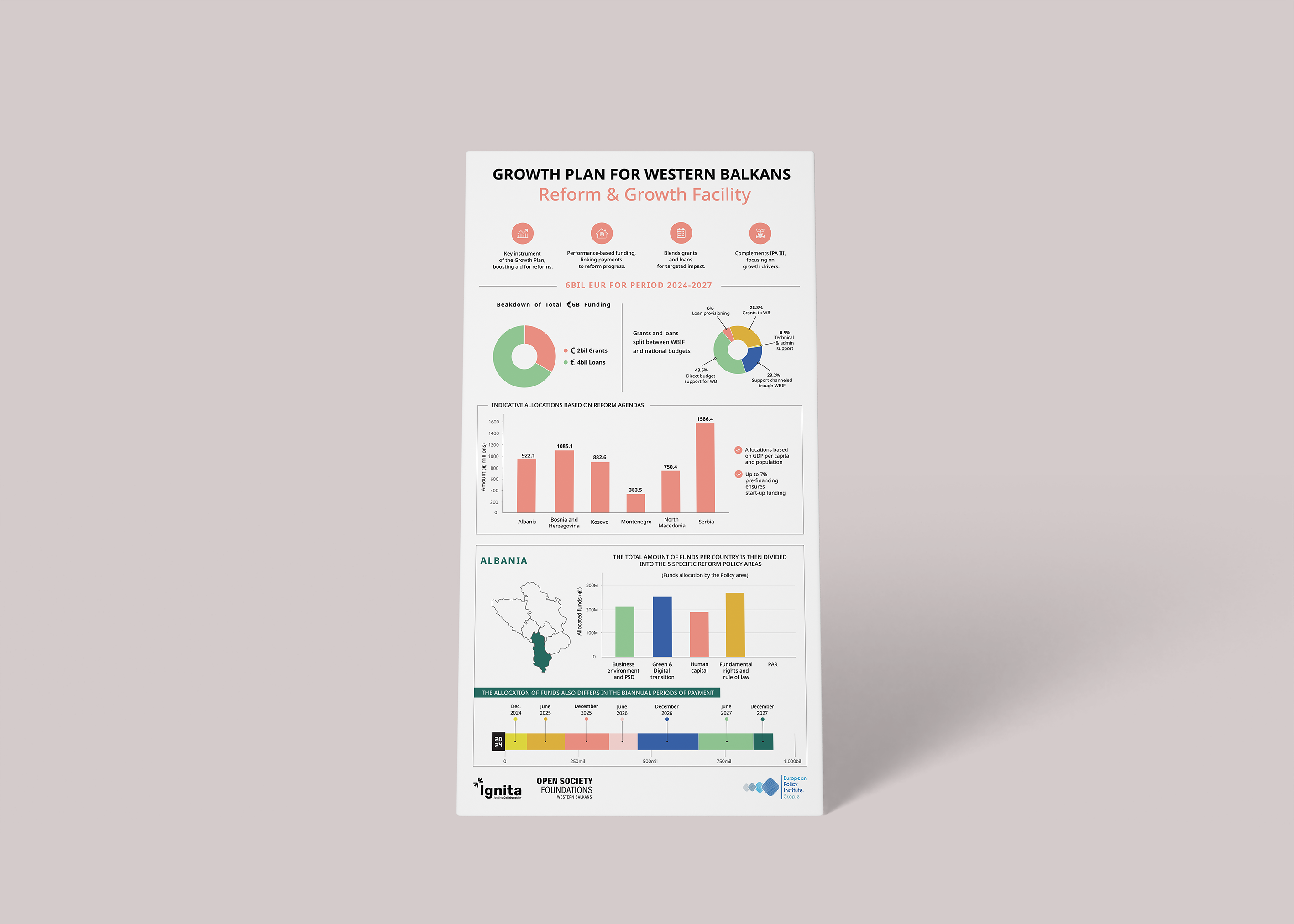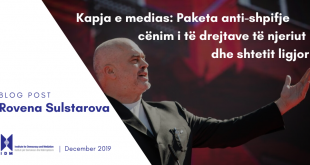Media capture: The defamation package violates human rights and the constitution
“We have the natural right to use our pens
and tongues at our own risk and sacrifice.”
‘Freedom of press’ in the Philosophical Dictionary (1764)
Author: Rovena Sulstarova
The proposed package of amendments to the media legislation has been met with concern by critics that accuse the Rama Government of restricting the freedom of expression in Albania. The planned changes include additions and amendments to “On Audiovisual Media in the Republic of Albania” Law No. 97/2013 and “On Electronic Communications in the Republic of Albania” Law No. 9918, dated 19.5.2008, with the rationale that these changes will help organize virtual media and fight fake news. However, control of virtual media through this package constitutes a threat to the guarantee of freedom of expression and transparency. By vesting judicial powers to two national media operators, Audiovisual Media Authority (AMA) and Electronic and Postal Communications Authority (AKEP), the amendments violate the principle of separation of powers and are in complete contradiction with the legal provisions in place. Most importantly, they do comply with the international standards and conventions ratified by the Republic of Albania to guarantee freedom of expression and freedom of the press.
Below are some of the main objections to the so-called “Anti-Defamation Package”, addressing the threat posed to human rights, the rule of law, and freedom of expression:
- Article 22 of the Constitution of Albania guarantees the freedom of expression and freedom of the press, including audiovisual media such as radio and television. However, Article 7 of the Anti-Defamation Package stipulates 11 principles, obligations and rules, with which virtual media must comply when publishing news, video, audio or any form of informational materials. Many of the obligations seek to impose preliminary restrictions by censoring material before publication. For example, it is now a precondition that all virtual media including blogs register with the national business registration center before they are allowed to publish. This negatively affects the freedom of expression as it will cause a lack of plurality of opinions and (critical) voices. Enforcement of these rules is mandatory; otherwise, sanctions apply to the subject that fails to comply with them. According to point 3 of Article 22 of the Constitution of the Republic of Albania, prior censorship of communication is always prohibited.
- The legal provisions on freedom of expression foreseen in the package conflicts with the provisions of international acts in this field. Article 19 of the Universal Declaration of Human Rights and Article 10 of the European Convention on Human Rights guarantee the freedom of expression and the freedom of the media as a fundamental political and civil right. In addition, the jurisprudence of the European Court of Human Rights emphasizes the importance of guaranteeing this right in democratic political processes and in the development of human beings. For example, in Handyside vs. the United Kingdom, the Court ruled: “Freedom of expression constitutes one of the essential foundations of a democratic society, one of the basic conditions for its progress and for the development of every man” or “the press plays a prominent role in a country governed by the rule of law.”[1].
- When virtual media fail to comply with any of the 11 rules in their news editions, they can be punished by the AMA Complaint Commission. This commission is vested with the authority to issue an order to media to publish an apology as per the set formula, according to the relevant decision of the violation found, or by penalty fine as specified in the package. In addition to fines, the package also provides for the option of shutting down the portals for a time span that ranges from 24 hours to one year. The decisions made by this commission are binding and enforceable without giving the media the time needed to file an appeal to the court, thereby infringing the constitutional right to due process (Article 42 of the Constitution). The adjudication process of defamation is a process that is constitutionally and legally attributed only to the judiciary.
- While they are to be independent institutions, as provided for in the constitutional and legal framework in force, AMA and AKEP may be influenced by the government’s discretion, because the parliamentary majority controlled by the government appoints the heads of these two bodies. Under these conditions, AMA and AKEP offer no genuine guarantee in being fully independent in their decision-making, thus jeopardizing the freedom of speech.
Guaranteeing freedom of expression is one of the fundamental rights of democratic countries and a starting point for the development of a free and democratic society. Freedom of expression is a right that enjoys special constitutional protection and is, at the same time, recognized as a fundamental European right by the European Court of Human Rights.
Therefore, if these draft laws are passed by the Parliament, the next logical step for the stakeholders would be to challenge them with the President of the Republic, the Constitutional Court and, subsequently, with the European Court of Human Rights. Consequently, despite the process being protracted due to the fact that the Constitutional Court is currently dysfunctional, these laws will definitely be repealed. In the meantime, the constraint on the freedom of expression in the media will be real, as it did in very rare cases during the post-communist transition years. Perhaps, its biggest effects will be an increasing amount of government propaganda and media self-censorship, as a result of which criticism on the Rama government’s failures will be less voiced in the public domain and in lower tone than ever before.
[1] Castells v. Spain, 1992; Prager and Oberschlick v. Austria, 1995.





